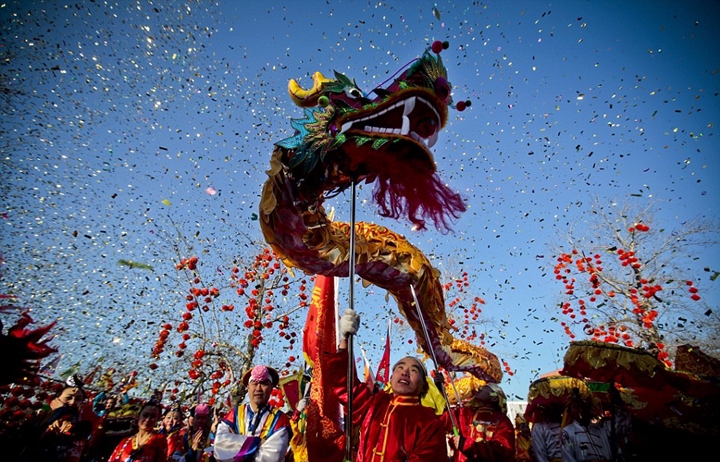
The Chinese Lunar New Year begins Friday. The 15-day celebration - ending on Valentine's Day - will usher in the Year of the Horse.
Travel is already underway for the holiday, which is China's largest migration season. Thanks to the mass flock from rural and to urban areas in recent decades, the Lunar New Year has become a frenzied travel period.
The Chinese government is expecting more than 3.62 billion trips this year as people return home, including 258 million trips by rail and another 42 million by plane.
For those not traveling around or to China, a variety of celebrations are taking place around the world. San Francisco's New Year parade, taking place on Saturday, Feb. 15, is the largest Asian celebration in North America. Washington, D.C. and Chicago will host festivities, and in New York City, the Empire State Building will display in its windows a special light exhibit designed by singer Guo Feng.
In Europe, London will host a day of activities on the West End, including musical performances and crafts.
Potentially missing from China's celebration this year, however, will be fireworks. Earlier today, Chen Zhenlin, spokesman for the China Meteorological Administration, told state media he believed fireworks should be banned due to the dangerous smog levels in China.
"Firecrackers and fireworks can release large amounts of toxic gas and particles such as sulphur dioxide, which will cause sever air pollution," he said.
So far, no ban has been issued, though authorities in Beijing have asked people to set off fewer fireworks in order to help improve the air quality. The Beijing Consumer Association asked residents to consider flowers and electronic substitutes as alternatives to fireworks.
Already this month, air pollution has reached levels 20 higher than those considered healthy by the World Health Organization.
Other annual activities are schedule to continue as planned, including the Spring Festival Global Gala. Scheduled performers include the Australian husband-and-wife musical duo Syre & Fresco, British singer James Blunt and dancers from South Africa, Thailand and the U.S.
In addition to the regular festivities, this year's celebration is also marked by human rights and political action. Last week, Reuters reported that China had returned more than $1.65 billion of unpaid wages to migrant workers so they would be able to afford to go home and to give gifts to their families.
On the other hand, Bloomberg reports that Thailand is expecting to lose as much as $685 million as travelers cancel trips in light of the anti-government protests. Last year, 4.2 million people from China, Hong Kong and Taiwan spent part of their New Year celebration in Bangkok.
Since November, 100,000 demonstrators have taken to the streets, protesting a general election scheduled to take place on Sunday. At least 10 people have been killed.















